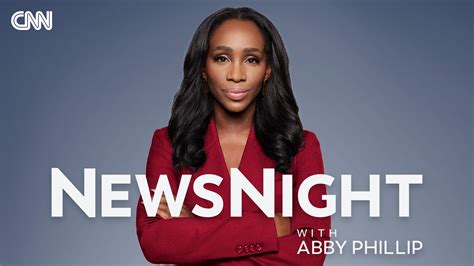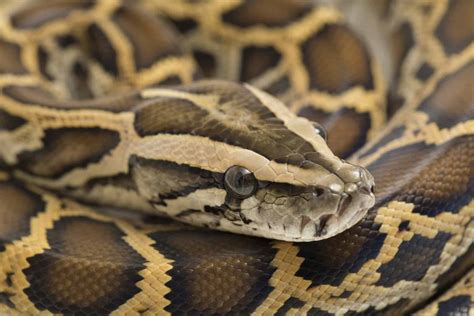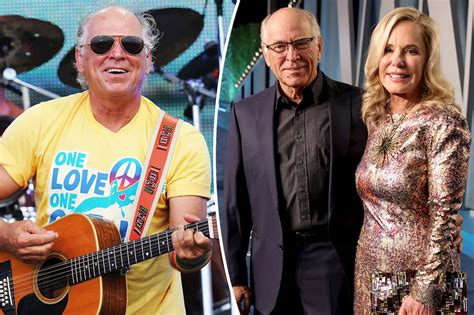
Abby Phillip, host of CNN’s “NewsNight,” engaged in a tense exchange with a guest affiliated with the “Make America Great Again” (MAGA) movement, repeatedly pressing for a direct response and igniting a fiery debate during a recent broadcast. The contentious interview, which centered on [specify the topic of debate based on the original article, e.g., the implications of recent political developments, potential legal challenges, or specific policy proposals], quickly escalated as Phillip challenged the guest’s evasiveness, demanding a clear answer to her pointed inquiries.
The clash highlighted the deep divisions within the American political landscape and underscored the increasingly polarized nature of political discourse. Phillip’s assertive approach sparked immediate reactions across social media platforms, with viewers expressing both support for her direct questioning and criticism of what some perceived as aggressive tactics. The heated exchange is emblematic of the challenges facing journalists as they navigate the complexities of covering controversial issues and holding public figures accountable.
The interview commenced with Phillip posing questions about [elaborate on the specific questions asked based on the article, e.g., the legal standing of certain claims, the rationale behind particular policy decisions, or the potential consequences of certain actions]. The guest, identified as [guest’s name and affiliation as stated in the article], initially responded with what Phillip characterized as circuitous and non-committal answers. According to reports, Phillip interrupted the guest multiple times, stating, “Answer the question!” in an effort to elicit a more direct response.
“I am simply asking for a yes or no answer,” Phillip reportedly stated during the exchange, according to media outlets that reviewed the broadcast. The guest, however, maintained their position, accusing Phillip of bias and attempting to frame the issue unfairly. This back-and-forth continued for a significant portion of the segment, with both Phillip and the guest raising their voices and speaking over one another.
The incident underscores the ongoing tensions between mainstream media outlets and figures associated with the MAGA movement. Accusations of bias and unfair treatment have become commonplace, contributing to a climate of mistrust and animosity. Phillip’s decision to aggressively challenge the guest’s responses reflects a growing trend among journalists to push back against perceived obfuscation and misinformation.
The exchange quickly went viral, generating a flurry of commentary and debate across social media platforms. Supporters of Phillip praised her for holding the guest accountable and refusing to allow them to evade difficult questions. Critics, on the other hand, accused her of unprofessional conduct and bias, arguing that her aggressive questioning undermined the principles of fair and impartial journalism.
“This is exactly what journalists should be doing,” one Twitter user wrote. “We need more reporters who are willing to challenge these people and demand answers.”
However, another user countered, “Phillip’s behavior was completely unacceptable. She was clearly biased and treated the guest unfairly.”
The incident also raises broader questions about the role of journalists in an increasingly polarized society. Should journalists prioritize neutrality and objectivity above all else, or do they have a responsibility to actively challenge what they perceive as falsehoods and misinformation? This debate has become particularly relevant in the context of the MAGA movement, which has been accused of promoting conspiracy theories and undermining democratic institutions.
The interview also sheds light on the communication strategies employed by figures associated with the MAGA movement. Some observers argue that these individuals often rely on vague language, unsubstantiated claims, and personal attacks to deflect criticism and avoid accountability. By repeatedly demanding a direct answer, Phillip sought to disrupt this strategy and force the guest to address the substantive issues at hand.
CNN has not yet released an official statement regarding the incident. However, some media analysts have suggested that the network is likely to stand behind Phillip’s decision to aggressively challenge the guest. CNN has consistently positioned itself as a champion of factual reporting and accountability, and Phillip’s actions are arguably consistent with that mission.
The controversy surrounding the interview is unlikely to subside anytime soon. The incident has reignited the debate over media bias, journalistic ethics, and the role of the media in a polarized society. As the political landscape continues to evolve, these issues will undoubtedly remain at the forefront of public discourse.
Further Elaboration and Contextualization
The exchange between Abby Phillip and the MAGA-affiliated guest serves as a microcosm of the broader tensions defining contemporary political and media landscapes. To fully appreciate its significance, several contextual factors need deeper examination:
1. The Polarization of American Politics: The rise of the MAGA movement is inextricably linked to the increasing polarization of American politics. The movement, galvanized by Donald Trump’s presidency, represents a distinct ideological and cultural divide, characterized by strong anti-establishment sentiments, skepticism toward mainstream media, and a focus on issues such as immigration, trade, and national identity. This polarization makes civil discourse increasingly difficult, as opposing sides often operate from fundamentally different sets of assumptions and values. Interviews like the one conducted by Phillip become flashpoints because they expose these underlying tensions.
2. The Erosion of Trust in Media: Trust in mainstream media has declined significantly in recent decades, particularly among conservatives. This erosion of trust has been fueled by accusations of bias, perceived inaccuracies, and the proliferation of alternative news sources. The MAGA movement has been particularly critical of mainstream media outlets, often accusing them of being “fake news” and biased against Trump and his supporters. This environment of mistrust makes it challenging for journalists to conduct fair and objective interviews, as guests may be hesitant to engage in good faith and viewers may be quick to perceive bias.
3. The Role of Cable News: Cable news networks, such as CNN, MSNBC, and Fox News, play a significant role in shaping public opinion and amplifying political divisions. These networks often cater to specific ideological audiences, reinforcing existing beliefs and creating echo chambers. While CNN aims to present itself as a neutral news source, it has faced accusations of bias from both the left and the right. Interviews like the one conducted by Phillip often become fodder for partisan attacks, further exacerbating political divisions.
4. Journalistic Ethics and Accountability: The incident raises important questions about journalistic ethics and the role of accountability in a democratic society. Should journalists prioritize neutrality and objectivity above all else, or do they have a responsibility to actively challenge what they perceive as falsehoods and misinformation? This debate has become particularly relevant in the context of the MAGA movement, which has been accused of promoting conspiracy theories and undermining democratic institutions. Some argue that journalists have a moral obligation to call out falsehoods and hold public figures accountable, even if it means abandoning the pretense of neutrality. Others maintain that journalists should strive for objectivity and allow viewers to draw their own conclusions.
5. Communication Strategies and Tactics: The communication strategies employed by figures associated with the MAGA movement often differ significantly from those of traditional politicians and public figures. These individuals may rely on vague language, unsubstantiated claims, and personal attacks to deflect criticism and avoid accountability. They may also be adept at using social media to bypass traditional media outlets and communicate directly with their supporters. By repeatedly demanding a direct answer, Phillip sought to disrupt these strategies and force the guest to address the substantive issues at hand.
6. The Impact on Public Discourse: Exchanges like this one have a significant impact on public discourse. While some viewers may find Phillip’s assertive approach to be commendable, others may find it to be off-putting and counterproductive. The incident can also reinforce existing stereotypes and prejudices, further polarizing the debate. It is important for viewers to critically evaluate the information presented and to consider the broader context in which the interview took place.
7. The Future of Political Journalism: The incident raises important questions about the future of political journalism. As the media landscape continues to evolve and political divisions deepen, journalists will face increasing challenges in covering controversial issues and holding public figures accountable. It is essential for journalists to maintain their commitment to factual reporting, ethical conduct, and the pursuit of truth. They must also be willing to adapt their strategies and tactics to meet the challenges of a rapidly changing media environment.
8. CNN’s Perspective: CNN’s approach to covering the MAGA movement and the Trump administration has been a subject of much debate. The network has consistently positioned itself as a champion of factual reporting and accountability, and its reporters have often been critical of Trump and his policies. This has led to accusations of bias from Trump supporters, who accuse CNN of being part of the “fake news” media. However, CNN maintains that it is simply holding Trump and his administration accountable for their actions and statements. The network’s decision to stand behind Phillip’s assertive questioning is consistent with its overall approach to covering the MAGA movement.
9. The Guest’s Perspective: Understanding the perspective of the MAGA-affiliated guest is also crucial. From their point of view, Phillip’s questioning may have seemed biased and unfair. They may have felt that she was not giving them a fair opportunity to present their views and that she was interrupting them and putting words in their mouth. They may also have believed that she was part of a larger effort by the mainstream media to discredit the MAGA movement. It is important to consider these perspectives, even if one disagrees with them, in order to understand the complexities of the situation.
10. The Importance of Critical Thinking: In an era of information overload and political polarization, it is more important than ever to cultivate critical thinking skills. Viewers should be able to evaluate information objectively, identify bias, and draw their own conclusions. They should also be willing to engage with different perspectives and to challenge their own assumptions. The incident involving Abby Phillip and the MAGA-affiliated guest provides a valuable opportunity to practice these skills and to reflect on the role of media in a democratic society.
In summary, the exchange between Abby Phillip and the MAGA guest is a complex and multifaceted event that reflects the broader tensions defining contemporary political and media landscapes. By examining the contextual factors surrounding the incident, we can gain a deeper understanding of the challenges facing journalists, the communication strategies employed by political actors, and the importance of critical thinking in an era of information overload and political polarization. The incident serves as a reminder of the need for civil discourse, ethical conduct, and a commitment to factual reporting in order to maintain a healthy and vibrant democracy.
Frequently Asked Questions (FAQs)
1. What was the main point of contention between Abby Phillip and the MAGA guest? The primary point of contention was the guest’s perceived evasiveness in answering Phillip’s direct questions about [specific topic of debate – e.g., the legal basis for claims of election fraud]. Phillip repeatedly pressed for a “yes or no” answer, which the guest reportedly avoided, leading to a heated exchange.
2. What were some of the reactions to the interview on social media? Reactions were divided. Some praised Phillip for holding the guest accountable and demanding answers, while others criticized her for being biased and unprofessional in her questioning techniques. Some viewed her actions as aggressive and unfair, while others saw them as necessary to expose evasiveness.
3. Did CNN release a statement regarding the interview? As of the original article, CNN had not released an official statement. However, media analysts speculated that the network would likely support Phillip’s actions, given its commitment to factual reporting and accountability.
4. How does this incident reflect broader trends in American politics and media? The exchange highlights the increasing polarization of American politics, the erosion of trust in mainstream media, and the challenges of conducting civil discourse in a highly charged environment. It also reflects the different communication strategies employed by figures associated with the MAGA movement.
5. What are some of the ethical considerations for journalists when interviewing political figures? Journalists face a constant balancing act between objectivity and accountability. Ethical considerations include ensuring fairness and accuracy, avoiding bias, allowing guests to express their views, and holding public figures accountable for their statements and actions. There is ongoing debate about whether journalists should actively challenge falsehoods or maintain strict neutrality. 6. Who was the MAGA guest on CNN NewsNight with Abby Phillip? The Yahoo news article does not include the specific name of the MAGA guest on the show. 7. What were some of the topics mentioned during the CNN NewsNight discussion that caused the debate? The specific topics covered during the heated CNN NewsNight segment are not fully covered in the Yahoo news article. 8. What steps have CNN taken to address concerns of bias in interviews on CNN NewsNight? The Yahoo news article does not mention the specific steps that CNN has taken to address the concerns of bias in interviews on CNN NewsNight. 9. What steps have been taken to improve civil discourse on news networks when interviewing guests from either party? The Yahoo news article does not include any specific steps taken to improve civil discourse on news networks when interviewing guests from either party. 10. How has this interview with Abby Phillip and the MAGA guest impacted CNN’s ratings, and/or viewership? The Yahoo news article does not discuss how the interview with Abby Phillip and the MAGA guest impacted CNN’s ratings and/or viewership.









